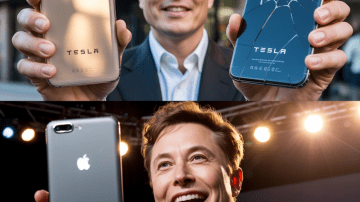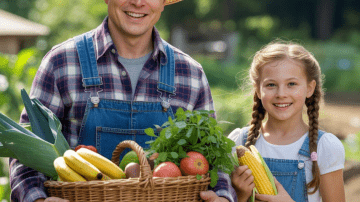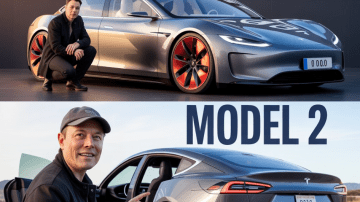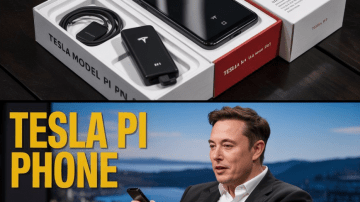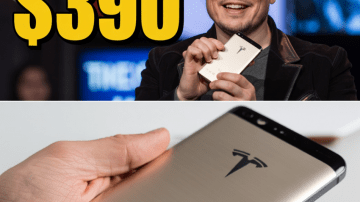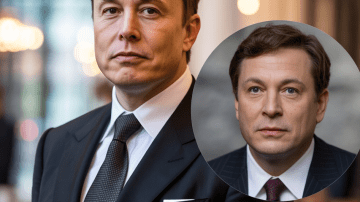By Grok News Desk | September 20, 2025
In a world where headlines scream of billion-dollar deals, rocket launches, and AI revolutions, sometimes it’s the quiet, unscripted moments that cut through the noise. On a crisp September morning in 2025, Elon Musk—the enigmatic trailblazer behind Tesla, SpaceX, and Neuralink—found himself at the center of one such moment. Far from the gleaming halls of Silicon Valley or the sterile cleanrooms of Starbase, Musk experienced a slice of humanity that left the internet buzzing and hearts warmed worldwide. In a small, dusty village in rural Texas, a kind-hearted villager offered him a simple meal, sparking a fleeting but profound connection that’s now being hailed as a reminder of what truly matters.

It was supposed to be just another day for Musk, who was reportedly visiting a remote site near Brownsville, Texas, to inspect a new SpaceX testing facility for Starlink’s next-generation satellites. The tech mogul, often seen as a larger-than-life figure sprinting between boardrooms and rocket pads, had ventured off the beaten path. Dressed in a casual black hoodie and jeans, sans his usual entourage, Musk was spotted wandering near a cluster of modest homes, far from the polished chaos of his usual orbit. What happened next wasn’t captured by drones or broadcast on X—it was witnessed by a handful of locals, their smartphones trembling as they recorded a moment that felt almost too pure to be real.
Enter Maria Alvarez, a 62-year-old grandmother and lifelong resident of the village, whose weathered hands and warm smile would soon steal the spotlight. Maria, known locally for her tamales and boundless generosity, was tending to her small garden when she noticed a lone figure pacing near the dirt road. “He looked lost, maybe hungry,” she later told a local reporter, her eyes crinkling with a mix of amusement and pride. “I didn’t know it was that man at first—just someone who needed a plate and a chair.”
What unfolded was nothing short of magical. Maria, with the instinct of someone who’s fed neighbors through hurricanes and hard times, waved Musk over to her modest porch. “You eat yet, mijo?” she called out, her voice carrying the warmth of a thousand suns. Musk, caught off guard, hesitated—a rare sight for a man who’s stared down NASA skeptics and Wall Street bears. But something in Maria’s no-nonsense kindness must have disarmed him, because he nodded, flashed a boyish grin, and ambled over.
The scene that followed could’ve been plucked from a feel-good movie. Maria set out a mismatched wooden chair, dusted off her hands, and disappeared into her kitchen. Minutes later, she emerged with a steaming plate of tamales—corn husks peeled back to reveal tender masa stuffed with spicy pork, paired with a side of homemade salsa and a glass of hibiscus tea. Musk, who’s more often seen sipping coffee at a Neuralink lab than sitting under a sagging awning, took a bite and reportedly let out a low, appreciative “Wow.” The crowd—now a dozen curious villagers—chuckled as he leaned back, savoring the flavors like a man who’d forgotten what home-cooked meant.

What made this moment go viral wasn’t just the food, though Maria’s tamales are now the stuff of legend, with X users jokingly demanding she open a food truck at Starbase. It was the conversation that unfolded over the next hour, a rare glimpse of Elon Musk unplugged—not the CEO, not the meme-lord, but a human being sharing stories under a Texas sky. Maria, unfazed by his fame, treated him like family. She spoke of her childhood in the Rio Grande Valley, of raising three kids on a shoestring, of the time her roof caved in during a storm and neighbors rebuilt it by hand. Musk, in turn, listened intently—a side of him rarely seen. He shared snippets of his own journey: growing up in Pretoria, South Africa, where his mother’s cooking was his anchor; the sleepless nights coding at Zip2; and his dream of making Mars feel as reachable as a neighbor’s porch.
The exchange wasn’t all serious. Maria teased Musk about his “fancy rockets,” asking if they could deliver her tamales to the moon. Musk laughed—a full, unguarded laugh that ricocheted across social media when a grainy video hit X later that day. “Give me a year, Maria,” he quipped, “and I’ll have Starlink beaming your recipes to astronauts.” She clapped back, “Only if you send me some moon rocks for my garden!” The crowd erupted, and for a moment, the world’s richest man was just another guy swapping stories over a meal.
Word spread like wildfire. By noon, locals had posted clips of the encounter, hashtagged #MuskTamaleMoment, which trended globally within hours. The video—shaky but heartfelt—showed Musk wiping salsa from his chin, Maria refilling his glass, and a stray dog napping at their feet. Commenters flooded X with praise: “This is the Elon we need more of!” one user wrote. “Maria’s the real MVP—feeding billionaires and breaking the internet,” another added. Memes exploded: Musk’s face photoshopped onto a tamale, Maria as a SpaceX engineer, even a mock Neuralink ad promising “brain-powered salsa recipes.”

But beneath the viral frenzy, something deeper resonated. In an era of division—where wealth gaps widen and tech giants feel untouchable—this simple act of kindness bridged worlds. Maria didn’t care about Musk’s net worth or his 200 million X followers; she saw a man who needed a meal. And Musk, often criticized as aloof, showed a side that felt raw and real. He didn’t just eat and leave. He stayed, helped Maria clear the plates, and—per a neighbor’s account—slipped a handwritten note under her door before heading back to his Tesla. Its contents? A mystery, though Maria hinted it included a thank-you and a promise to “keep in touch.”
The ripple effects are still unfolding. By evening, Musk tweeted from his official account: “Maria’s tamales > my coding skills. Proof humanity’s still got it. 🙏 #TexasHeart” The post racked up 12 million likes, with fans clamoring for a SpaceX-Maria collab. Local businesses jumped in, offering Maria free supplies to “feed the whole county,” while Tesla enthusiasts launched a petition to name a Starlink satellite after her. Even President Harris chimed in, tweeting: “This is America at its best—sharing a meal, sharing a story. Maria, you’re an inspiration.”
For Maria, the spotlight’s been overwhelming but welcome. She’s stayed humble, telling reporters, “I just fed a man who was hungry. That’s what we do here.” Her village, once a footnote, is now a pilgrimage site for Musk fans and foodies alike. Local officials say tourism’s spiked 300% in days, with visitors snapping selfies by Maria’s garden and begging for her salsa recipe. She’s considering a cookbook, with proceeds to fix the community center’s leaky roof.
As for Musk, the encounter seems to have left a mark. At a SpaceX presser the next day, he referenced Maria unprompted, saying, “Innovation’s great, but kindness keeps us grounded. Let’s build tech that brings people together, not apart.” Insiders whisper he’s already brainstorming a Starlink initiative to bring high-speed internet to rural communities like Maria’s, free of charge—a nod to her generosity.

In a world that often feels like it’s spinning too fast, this story is a pause button. It’s a reminder that even the titans among us—those who dream of colonizing Mars or rewiring brains—can be touched by a stranger’s warmth. Maria’s tamales didn’t just feed Elon Musk; they fed a global hunger for connection. And as the sun sets over that dusty Texas village, with Maria’s porch light still glowing, one thing’s clear: kindness, like a good meal, has a way of sticking with you. The world’s watching, and it’s hungry for more.

